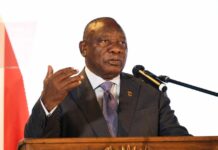Republican Rep. Carol Miller, 68, defeated West Virginia State Sen. Democrat and former Army Maj. Richard Ojeda in the state’s 3rd Congressional District in the 2018 midterm elections as the only new Republican woman elected to Congress.
Q: What is your overall stance on the U.S.-Israel relationship?
A: I’m very pro-Israel. They’re our democratic friends in the Middle East.
Q: What do you think makes the relationship special?
A: Since 1945, we’ve been aligned with them. Some of the policies in the past administration weren’t as pro-Israel as I would have liked. And I know [where] U.S. President Donald Trump stands … we got Jerusalem [recognized as Israel’s capital] right off the bat. That ought to tell you something. I stand firm with him and his views.
Q: What interests do you think the United States and Israel share?
A: They are a democratic ally. We are a Judeo-Christian society. We have all of those things in common.
Q: Especially as someone from West Virginia, are you familiar with Israel’s rising energy industry?
A: Not probably as much as you’d like me to be, but I’m very willing to learn more about what is going on.
Q: Have you ever been to Israel?
A: No, but I look forward to going this summer.
Q: With AIPAC?
A: Yes.
Q: What is your reaction to new Democratic congresswomen Ilhan Omar and Rashida Tlaib, who have made and continue to make anti-Israel statements?
A: I gave a speech on the House floor about it. I grew up in Columbus, Ohio, in the city of Bexley, which is a very Jewish community. My best friend growing up, we shared everything. My sister-in-law is Jewish; her brother-in-law is Israeli. I have family ties and shared many holidays together. And I’m pro-Israel from the time I was a little girl.
Q: What was like to grow up in a Jewish community and to have a Jewish in-law, not being Jewish yourself?
A: Growing up, I went to bat mitzvahs and bar mitzvahs, and went to services, and my sister-in-law is wonderful. Her family is Jewish, and my brother became a Jew. It’s just wonderful.
Q: What is your reaction to the decision to withdraw U.S. troops from Syria?
A: I stand behind my president. I know it puts more pressure on Israel, and we need to make sure our allies are safe, so it remains to be seen what we will deal with—with Iran, in particular, because they are not our friend.
Q: Do you think U.S. troops should stay in Syria? Does America need a new Authorization for the Use of Military Force to combat Iranian forces?
A: Having been sworn in just recently, I need to really learn more before I can give you a definite answer.
Q: How about the concern the Kurds could be isolated?
A: That is a concern. I read and listen to the news. I am aware of that.
Q: What’s your stance on the Iran deal?
A: We pulled out of it. It was the right thing to do.
Q: Has this administration done enough to combat Iran, such as reimposing and slapping on new sanctions?
A: I think it’s ongoing. History is ahead of us and as well as behind us. I’m sure our country will do whatever is necessary to make sure that we support and protect our ally. And Israel is our friend; they are our ally. As I said, our president has taken a firm stance: He said he’d move the U.S. embassy in Israel to Jerusalem, and by golly, he did it, and I was very proud of him for doing it.
Q: Speaking of Jerusalem, what’s your response to those who say moving the embassy hinders the peace process between the Israelis and the Palestinians?
A: Who said that?
Q: Many Democrats, the left.
A: Well, I disagree.
Q: Why do you disagree?
A: I’m not part of the left faction. I think moving it to the capital there was the right move.
Q: What is your stance on BDS?
A: It’s not good. Boycotting and sanctions are not good.
Q: What’s your reaction to Senate Democrats blocking a bill that would further the U.S. relationship with both Israel and Jordan, impose sanctions on Syria and fight the BDS movement at home?
A: Politics are not always pretty. Why would they block it?
Q: What is your take on U.S. assistance to the Palestinian Authority?
A: It’s very good that we removed funding.
Q: What do you think about the rise in anti-Semitism in the United States and abroad?
A: It’s hideous. There’s no place for that in our life, in our country and across the world.
Q: How do we combat hatred?
A: That’s a good question. I don’t know what legislation can change people’s hearts, but we make legislation. I don’t know what’s wrong with people sometimes. It’s just not the way things should be.
Q: Is there anything else our readers should know about you?
A: I’ve always lived by the Golden Rule—that you do onto others as you would have others do to you. As I said, our country is a Judeo-Christian country, and our laws are founded on the Ten Commandments. I’m very solidly pro-Israel; it would be ludicrous not to be. We have to learn from our history; we have to remember our history. We can’t erase it. Schoolchildren should understand that horrible things can be [and have been] done to humanity; we need to understand. So I think education is very important. Moving forward, as I become more educated in my new position, I will be very aware of what’s going on in the Middle East, particularly supporting and protecting our allies.


























